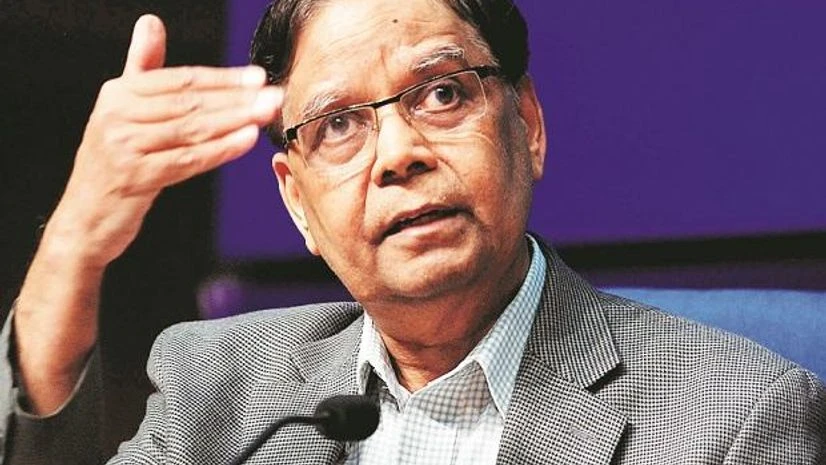India's economy is on an "upswing" and the government's plans for increased spending comes in the backdrop of pro-growth reforms, former Niti Aayog Vice Chairman Arvind Panagariya said on Tuesday even as he opined that it might take longer to become a USD 5 trillion economy due to the coronavirus pandemic-induced disruptions.
In an interview to PTI, the eminent economist described the government's decision to privatise two public sector banks next fiscal as an "unprecedented" effort to "finally right a wrong done 50 years ago".
He was apparently referring to former Prime Minister Indira Gandhi's move to nationalise banks.
Panagariya, who is currently a Professor of Economics at the Columbia University, saidthe country's GDP growth in October-December 2020 quarter returned to a hair's breadth above its level a year ago.
"At 0.4 per cent, the year-on-year growth in GDP may seem low but given the large negative growth during the preceding two quarters ((-)24.4 per cent during April-June and and (-)7.3 per cent during July-Sept), the quarter-on-quarter growth momentum is very strong," he said.
According to him, there are signs that the government is clearing past arrears at an accelerated pace and has also provided for doubling of government expenditure in the current quarter over the same quarter last year.
More From This Section
"These facts would help boost demand and give further impetus to growth at a time when the economy is on the upswing... So the news on the growth front is very encouraging," he said.
To a query on whether it will be feasible now for India to achieve the target of becoming a USD 5 trillion economy by 2024-25, he said that given the unexpected COVID shock, "we may have to wait a year or two longer".
In 2019, Prime Minister Narendra Modi envisioned to make India a USD 5 trillion economy and global power house by 2024-25.
The pandemic has hit the economy hard and the country's GDP is projected to contract nearly 8 per cent in the current fiscal ending March.
On whether he is in favour of reviewing the 2-6 per cent target inflation band, Panagariya said, "I would favour revising the target up by 1 percentage point".
In the past, he saidthe Monetary Policy Committee (MPC) had been quite reluctant to let the inflation rate rise above 4 per cent even though it has the room up to 6 per cent and was quite comfortable with the inflation staying around 2 per cent.
"Healthy GDP growth requires greater room for prices to adjust.Besides, enterprises draw up investment plans based on the growth of profits in nominal terms," he said, adding that the government wants low inflation to protect the poor but what matters for the poor is food inflation over which the RBI has very little control.
The inflation target for the Reserve Bank of India's MPC for the next five years starting April is likely to be notified around mid-March. The current medium-term inflation target, which was notified in August 2016, ends on March 31.
Onthe government's proposed asset reconstruction company and asset management company, Panagariya said, "one or the other way, we need a rapid clean up of NPAs".
If the government can move swiftly to set up the bad bank and take out the bad assets from the bank balance sheets, it will be a major step in the right direction, he said. "If it (government) cannot do that fast, it should be prepared to recapitalise the banks on a much larger scale than currently provided."
Replying to a question on fiscal expansionism, Panagariya said if the government had chosen to only expand spending to boost growth, ratings agencies may have seen it unfavourably.
"But the increase in spending has been proposed in the backdrop of a large number of pro-growth reforms, including a massive privatisation programme and creation of a "Bad Bank" to clean up NPAs," he said.
Noting that the rating agencies look at what the government does holistically than focus on just one indicator such as fiscal deficit, he said, "I see no danger from the ratings agencies".
On agitation by farmers against the new farm laws, Panagariya pointed out that discussions on APMC reforms are now 20 years old and every central government since Prime Minister A B Vajpayee has promoted the reforms.
Further, he said that the Parliamentary Standing Committee on Agriculture called for the reforms as recently as December 2019 and nearly all farm organisations had also called for these reforms at one time or the other.
"In the end, the solution will have to be worked out through discussions and negotiations," Panagariya opined.

)
